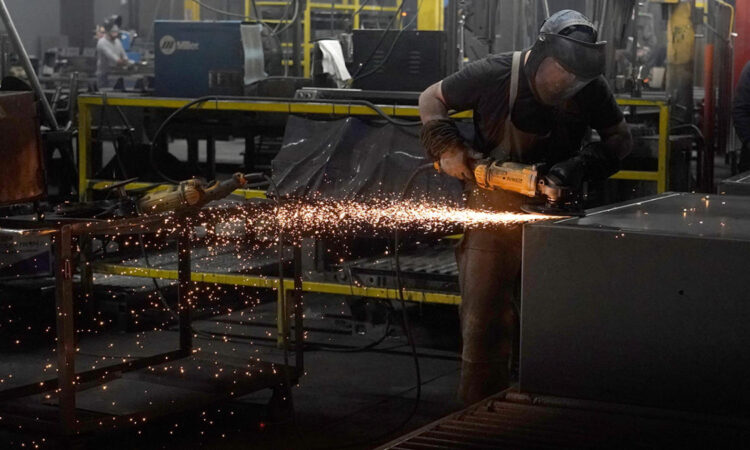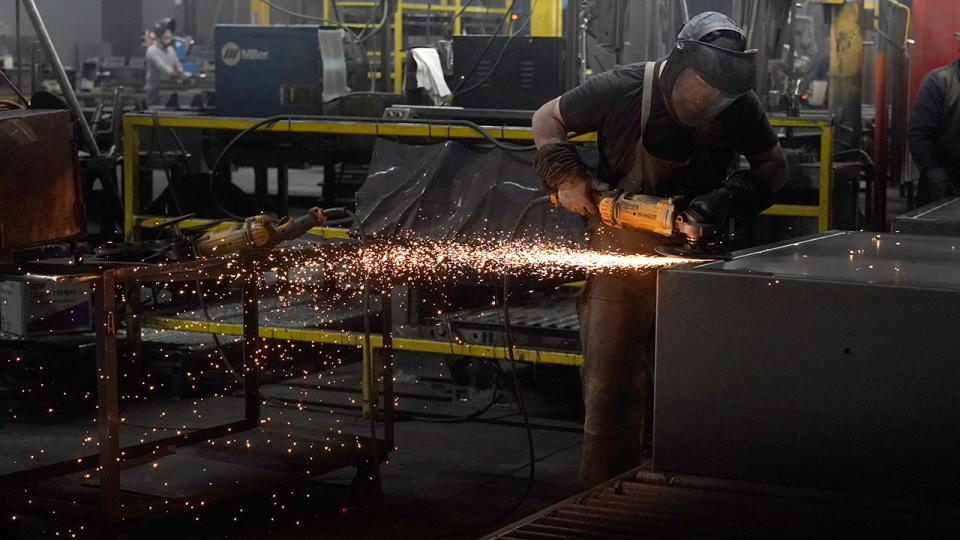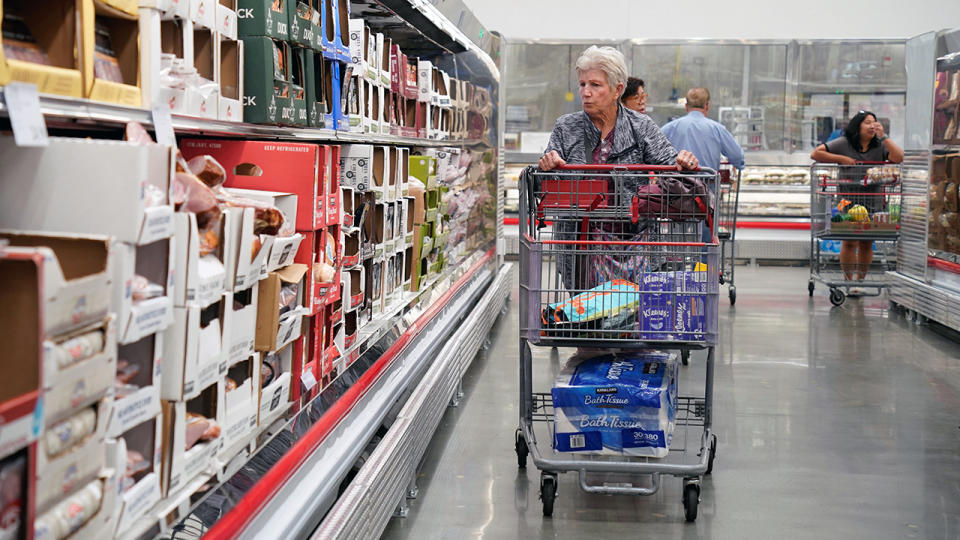
The U.S. economy grew at a slower pace in the third quarter than previously reported but remained resilient even in the face of still-high inflation and steep interest rates.
Gross domestic product, the broadest measure of goods and services produced across the economy, grew by 4.9% on an annualized basis in the three-month period from July through September, the Commerce Department said in its third and final reading of the data on Thursday. That compares with the previously reported 5.2% increase.
It marks the fastest pace of growth in nearly two years.
WORKERS NOW DEMANDING NEARLY $80K TO START NEW JOB

“The final look at GDP growth for the third quarter confirms the economy grew at a robust pace over the summer but tells little about the prospects of the economy as we head into 2024,” said Lydia Boussour, EY senior economist.
The change largely reflected a downward revision to consumer spending, which was lowered to a 3.1% rate.
DELINQUENCIES ARE RISING FOR CREDIT CARD, AUTO LOANS — AND IT COULD SOON GET WORSE
Despite the show of strength in the latest GDP report, there are other signs the economy is beginning to slow. Job growth is moderating; the housing market –—which is vulnerable to higher interest rates — is trapped in a prolonged downturn; and consumer spending has shown signs of cooling off.
Many economists expect to see further cooling in coming months as higher interest rates continue to work their way through the economy.

Steeper borrowing costs tend to create higher rates on consumer and business loans, which slow the economy by forcing employers to cut back on spending.
Yet there is a growing sense of optimism on Wall Street that the Federal Reserve may be able to successfully pull off the elusive soft landing.
Bank of America, Goldman Sachs and UBS have raised the odds that the U.S. economy averts a recession and cools without a severe spike in the unemployment rate next year as the result of multiple Fed rate cuts. At their most recent meeting, central bank policymakers penciled in three quarter-point rate cuts in 2024 and lowered their inflation outlook for the year ahead.
“The odds of the U.S. economy entering a recession in the next 12 months are higher than usual, around 45%, but while we believe a slowdown is nearly inevitable, a recession is by no means guaranteed,” Boussour said.
Original article source: US economic growth unexpectedly revised down to 4.9% in third quarter






